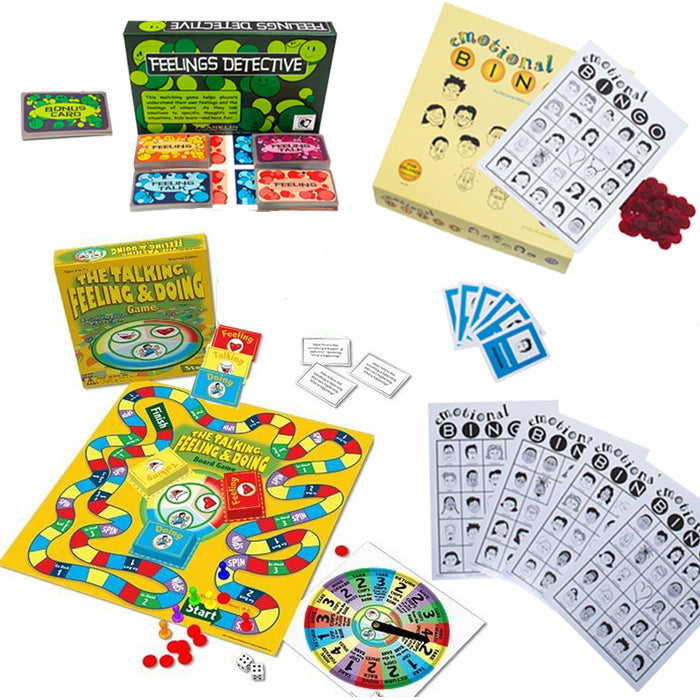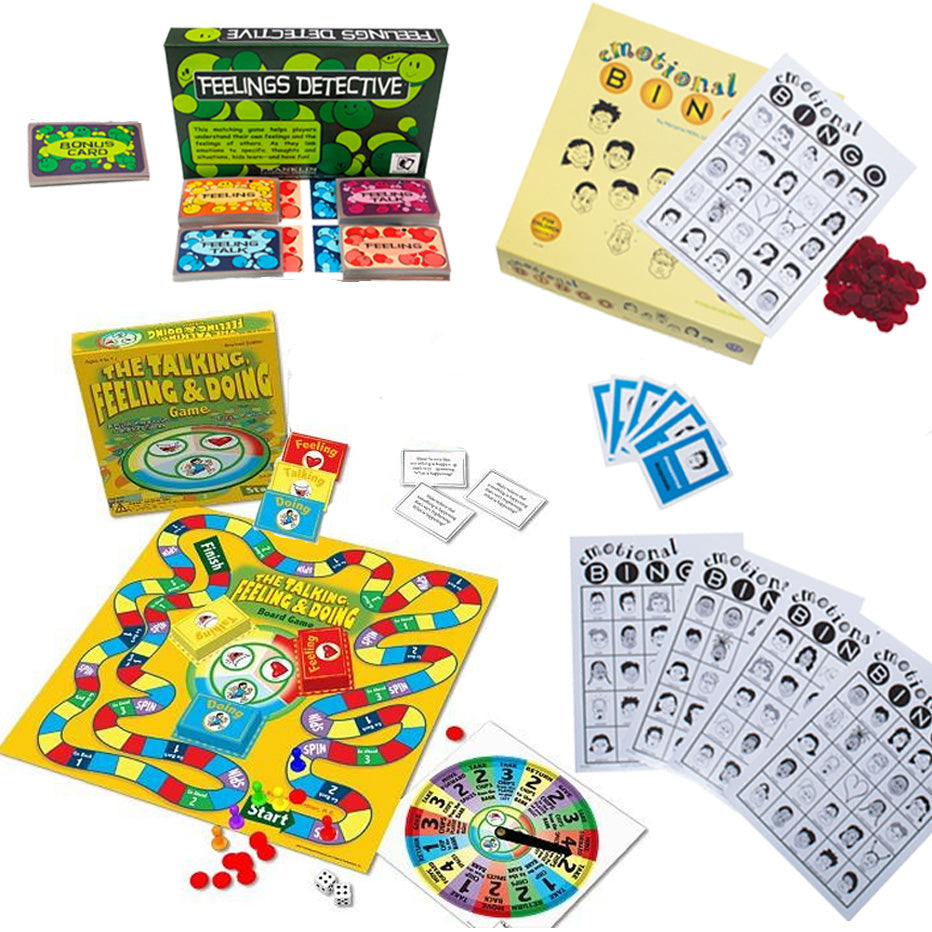Best Selling Feelings Education Games
- Engaging, stimulating games that foster social & emotional competence
- Fun activities that promote counseling goals
- Save when you buy all three best selling game
- Suitable for children up to 12 years old
Emotional Bingo for Children: A fun twist of the traditional game of bingo, Children must identify different emotions as they play the game. This game encourages discussion about feelings and the feelings of others. It is in both Spanish and English.
Feelings Detective helps all children understand their own feelings as well as the feelings of others.It is especially helpful for children who tend to misread social cues, including those who have been diagnosed with Asperger's Syndrome or are at any other position on the Autism Spectrum. Specific examples help players to link specific situations and thoughts with specific feelings. Feelings are the most basic building blocks of social skills. Without the ability to recognize feelings in themselves and others, children are not able to master social interactions.
The Talking, Feeling, and Doing Board Game: The first published therapeutic game, by Richard A. Gardner, M.D., is still one of the most popular tools used in child psychotherapy! This therapy game is played like a standard board game. The child and therapist place their playing pieces on Start, then take turns throwing the dice, and moving their pawn along a path of squares. Depending upon the color of the square on which the piece lands, the player selects a TALKING CARD, FEELING CARD, or DOING CARD. The child's responses are generally revealing of those psychological issues that are most important at that time. The engaging game format utilizing token reinforcement enhances the child's interest and elicits spontaneous revelations. The information gained provides diagnostically meaningful insights into the child's psychodynamics, and is of therapeutic value because each response can serve as a catalyst for therapeutic interchanges.


